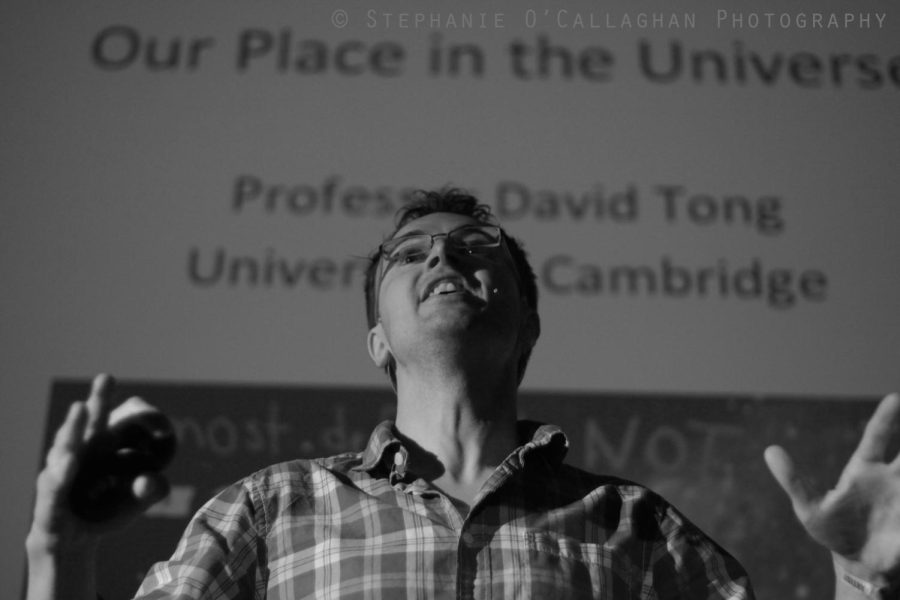Discerning the Science from the Scientist
Instead of idealizing our favorite scientists, we must praise the research—not the researcher.
May 1, 2023
Recently, my favorite physicist, David Tong, hosted a lecture that was open to all audiences. Unfortunately, I stumbled upon this event far too late to attend. At such a realization, the apparent burden of potentially never meeting the man who had enchanted me into—and I say this understatedly—the beyond-glorious and life-altering field of theoretical physics became far too great. I very maturely handled these feelings by crying for a good few hours.
In those moments of cosmic clarity that typically follow such a tragic event, I began to question the simple notion of “why?” Why must I be so attached to his work? At first, this seemed an obvious answer: In addition to providing me with the eternal joy of pursuing quantum field theory, he might just be the most superior scientist to ever walk the planet. It was only then that I realized what we all are at fault for: the spending of inordinate amounts of time idealizing the very notion of our favorite scientists (or athletes or chefs or writers or celebrities) instead of inquiring into their life’s actual works. In other words, I was attached to the freedom of viewing the universe with a grander transparency that he had come to nestle in my mind, but not the actual equations that he had so passionately struck onto an unworthy chalkboard.
Of course, this is something we can most certainly observe in the broader workings of the STEM community. Stephen Hawking’s book A Brief History of Time has come to be a massive success. Hawking’s astonishment at such a triumph was duly noted in his book My Brief History when he wrote: “It was on The New York Times bestseller list for 147 weeks and on London Times bestseller list for a record-breaking 237 weeks, has been translated into 40 languages, and has sold over 10 million copies worldwide” (Hawking 97). The book itself is astonishingly well-written, full of mystical theories discerning the cosmos that can only be written with the level of enthusiasm Hawking can manifest for us mere mortals.
It pains me, however, to note that this same book was dubbed one of the most unread books by the Wall Street Journal. Even Hawking, himself, came to humorously recount this basic fact about his work’s “success.” But if this is the case for a book targeted towards the common population, one can only speculate the extent to which his actual scientific papers are left unread by his supposed die-hard supporters. Albert Einstein is recognized as one of the world’s most famous scientists, but how many people who claim to be his fans have actually read his work? The excuse that it is too difficult cannot be the case as his paper on Special Relativity is predominantly unhampered by anything harder than basic calculus. This isn’t constrained to the realm of physics and mathematics. Having never even so much as glanced upon Charles Darwin’s On the Origins of Species, people often romanticize his studies—refusing to recognize that it is not his research they glorify but the man himself. We are no longer looking up to the universe, but to the personification of our cosmic yearning in our favorite scientist.
Indeed, this is an issue seen outside of scientific fields, but it is beyond important in this area of discipline as we must praise the research—not the researcher—to build upon discoveries. If this is not done, aspiring students might slip into the black hole of being unable to discern the science from the scientist.
This does not mean we must toss away the notion of idolizing our favorite scientist (I know I certainly can’t). It is something we cannot let go but should attempt to move beyond.
Who is your favorite scientist? I challenge you to ask: “Why”? What is it about these particular people that causes such an odd allure to them?
Dispel that supposedly “obvious answer” for a moment. Locate this person’s actual work and push forward. Regardless of how difficult it seems, push through it. I guarantee you the universe will change infinitely.


